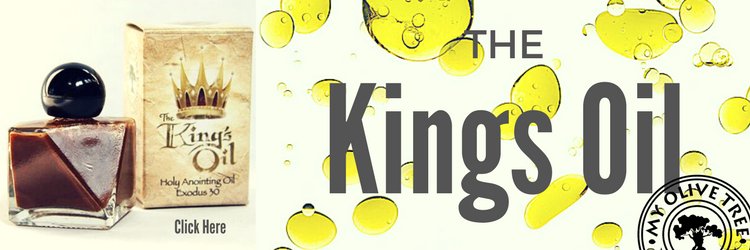Biblical significance of olive oil flows throughout the Bible. Used for anything from lighting lamps and offerings, to anointing, this precious oil has its place in biblical history.
Olive oil and the Jewish culture
Olive oil plays a significant role in the Jewish life. Olive trees might take some time to mature and become ready to bear fruit, but they produce and live for hundreds of years. Because of their life span, the olive tree’s oil symbolizes prosperity, stability, joy and health.
- “You have loved righteousness and hated lawlessness; therefore God, Your God, has anointed You with oil of gladness more than Your companions.”—Hebrews 1:9
On the contrary, the lack of oil was a sign of disaster, judgment and a curse.
- “You shall have olive trees through all your territory, but you shall not anoint yourself with the oil; for your olives shall drop off.”—Deuteronomy 28:40
Olive oil and parables
As Jesus taught in the parable of the ten virgins, He spoke of oil as a symbol of wisdom and readiness for His return. The five wise maidens were prepared for the Bridegroom because they took oil in their vessels with their lamps. Though there was a delay in the Bridegroom’s coming, they were prepared to act at any moment.
Jesus called for an awakening at the end of the parable.
- “Watch therefore, for you know neither the day nor the hour in which the son of Man is coming.”—Matthew 25:13
The oil the wise possesses symbolizes their anointing with the Holy Spirit.
- “The Spirit of the Lord is upon Me, because He has anointed Me to preach the gospel to the poor; He has sent me to heal the brokenhearted, to proclaim liberty to the captives…”—Luke 4:18
Olive oil used and anointing
Kings and priests were anointed with olive oil as a sign that they were set apart by God for His intended use and purposes.
- “Now the Lord said to Samuel, ‘How long will you mourn for Saul, seeing I have rejected him from reigning over Israel? Fill your horn with oil and go; I am sending you to Jesse the Bethlehemite. For I have provided Myself a king among his sons.’”—1 Samuel 16:1
The particular recipes used to sanctify priests held olive oil as one of its most important ingredients. The anointing oil was also used to sanctify the tabernacle and its fixtures.
- “And you shall take the anointing oil, pour it on his head and anoint him.”—Exodus 29:7
- “And you shall take the anointing oil, and anoint the tabernacle and all that is in it…”—Exodus 40:9
Clearly the use and symbolism of olive oil is significant to biblical history. If it was significant in the history and roots of our faith, we should carefully examine what it represents for the Church today.
As Believers in Yeshua, Jesus, Revelation 1:6 says, “[Jesus Christ] has made us kings and priests to His God and Father, to Him be glory and dominion forever and ever. Amen.”
As kings and priests, we have been set apart. The anointing oil is simply a symbol of that devotion and separation.
Let us not forget who we are in Yeshua, and what the Lord has done. “You prepare a table before me in the presence of my enemies; You anoint my head with oil, my cup runs over.”—Psalm 23:5
To learn more about how anointing oil is used by Believers today [Click Here].








